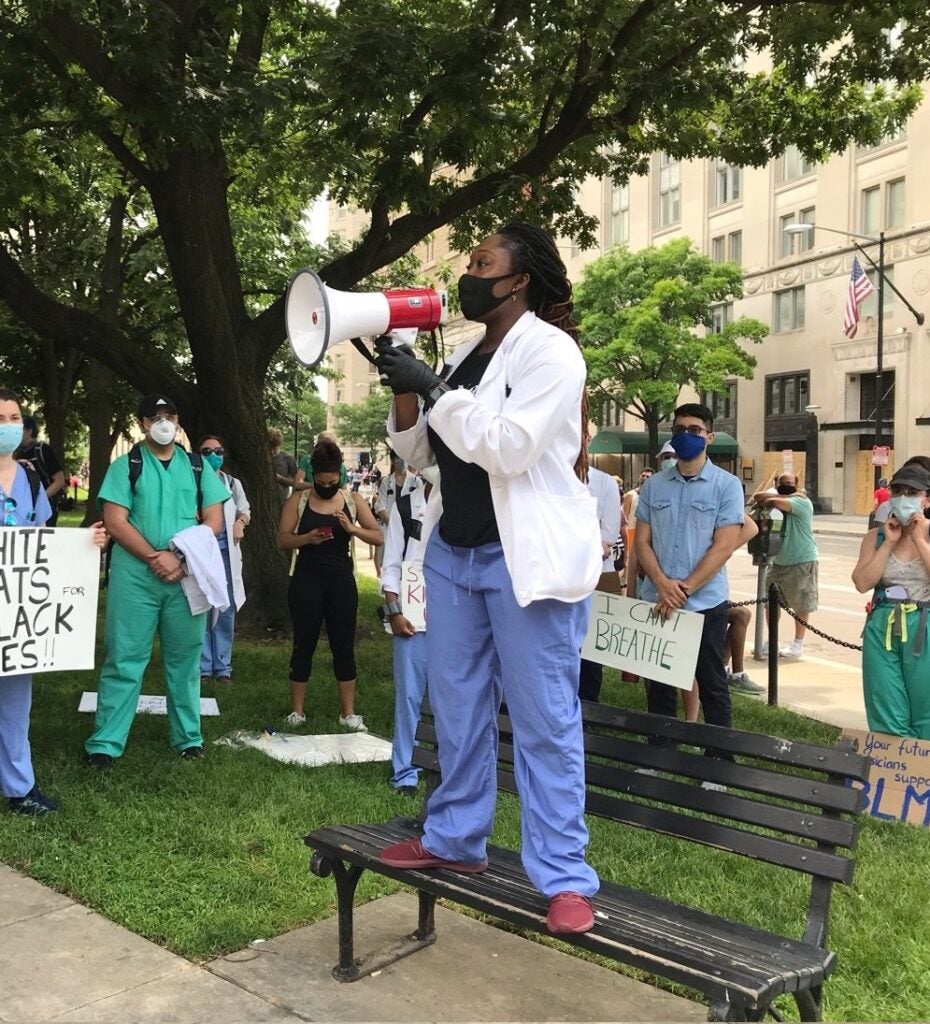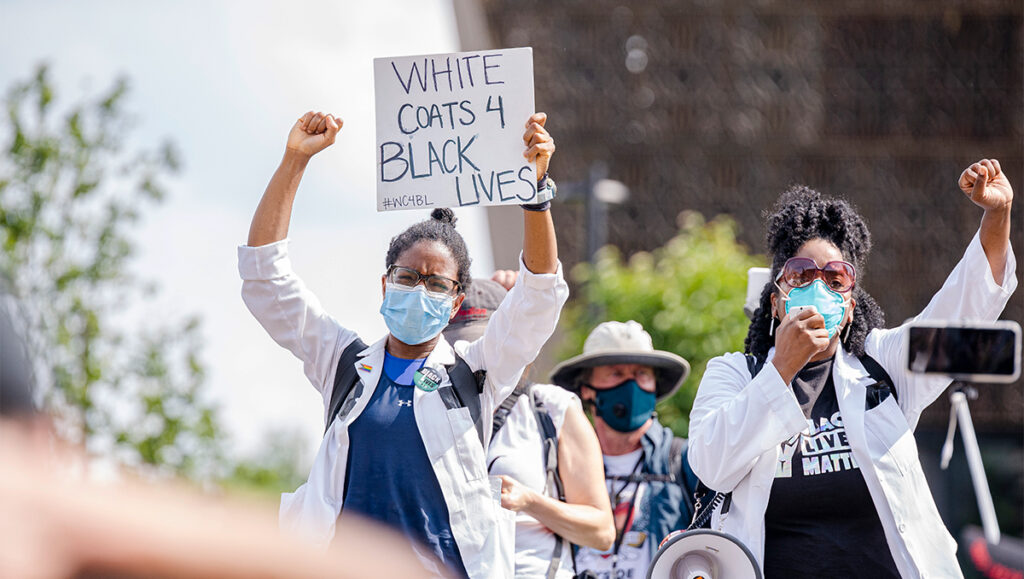Racial Justice Committee for Change
Voices for Change
Led by our values of racial justice and health equity, we are steadfast in our ongoing commitment to eliminating racism in all forms across our campus. We remain grateful to the members of the Racial Justice Committee for Change, a dedicated group of students, staff and faculty, for leading our pursuit for sustainable change across our medical center.

Origins
In May 2020, cities across the United States and the world erupted in angry protest following the brutal death of George Floyd in Minneapolis at the hands of police.
The uprising became a movement.
At Georgetown, leaders and groups across the various campuses declared their solidarity with the Black community.
One letter, however, differed from these declarations. On June 3, School of Medicine students penned an open letter to the administration with regard to policy and programmatic changes required for racial justice.
School of Medicine Students’ Open Letter: June 3, 2020
School of Medicine: Response from the EVP’s Office: June 29, 2020
Reaction and Action
The Racial Justice Committee for Change, co-led by students, faculty and staff from around the Medical Center, formed to address the points laid out in the student letter. Work toward this end is ongoing.

Open Letter Leads to Launch of Racial Justice Committee
As activists across the country protested against racism and police brutality, a group of Georgetown medical students exchanged text messages about how the university should respond. One of them suggested writing an open letter to university leaders. Seventy-two hours later, more than 500 students had signed the letter, which inspired the launch of the Georgetown University Medical Center Racial Justice Committee for Change (RJCC).
Resources for Change
From the Office of Diversity, Equity, Inclusion & Belonging at GUSOM
From the Georgetown Center for Multicultural Equity and Access
